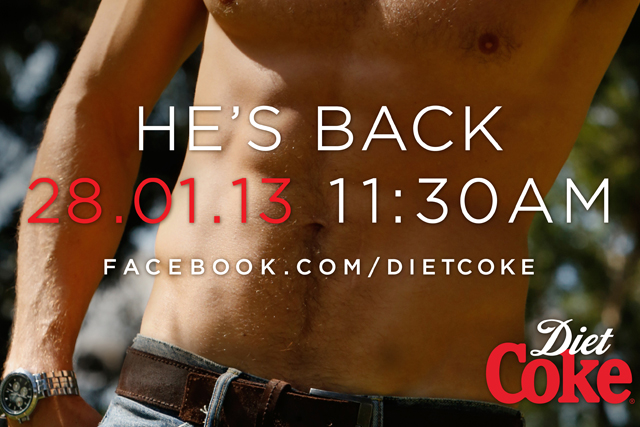
What do the Tube, The Financial Times, Harley Davidson, Coca-Cola, Cartier, Volkswagen, Starbucks and Marmite have in common?
Answer: they have all recently trumpeted their birthdays in a bid to attract publicity, boost their brands, increase sales, and remind consumers of their heritage.
Earlier this week, the FT celebrated its 125th anniversary with a global marketing campaign spanning press, digital, experiential and outdoor, telling readers it is "Still guiding the way for global business".
Meanwhile, last month from its classic TV ads.
Lager brand Heineken is celebrating its 140th birthday, while Heineken UK to begin a year-long celebration of the lager brand's 125th anniversary.
Meanwhile, Harley Davidson is marking its 140th anniversary, and .
But are these brands akin to the kid at school who witters on about it being his birthday, when the sad reality is that nobody cares? Or are their celebratory fanfares being heard and appreciated by the consuming public?
Marketing asked two experts – Alistair Green at media agency Mindshare UK, and David Goudge of consultancy The Brand Development Business – what they thought of this trend of self-congratulation.
Alistair Green, head of strategy, Mindshare UK
My birthday is in April and I may mark the occasion with a day off work and an evening out with  friends and family. People make a certain amount of effort when a birthday comes round: they buy presents, post cards or e-cards, send good wishes on Facebook, phone or Skype to catch up.
friends and family. People make a certain amount of effort when a birthday comes round: they buy presents, post cards or e-cards, send good wishes on Facebook, phone or Skype to catch up.
So, it's not surprising brands try to reap the same benefits when their birthday rolls around. Heineken is celebrating its 140th, Cartier its 155th, Coca Cola turned 125, and the youngsters Volkswagen (60), Starbucks (40), and Diet Coke (30), are out celebrating with anyone who will join in.
Since their inception, brands have always tried to position themselves as our best friend, and with a new media landscape to aid more personable interaction than ever before, brands continue to humanise their relationship with us to garner our loyalty. It's called good marketing, and brands that do it best make it a fun and rewarding experience, like any good birthday party should be.
Even though there is an ulterior motive for brands celebrating a birthday – to drive sales and ROI – it's not that different from my nine-year-old inviting both classes of boys in his year so he could get more presents.
As Hobbes explained, all acts are selfish by default. So a brand deciding to celebrate its birth date is a good strategy, as long as like any good host, it makes sure its guests have a good time and it doesn't use it as an opportunity to pontificate about its entire life story.
David Goudge, managing director, The Brand Development Business
Diet Coke is 30, Doctor Who is 50, Harley Davidson is 110; but who cares?
Certainly the brand team, and their ad and PR agencies. But what about the consumer?
In tough economic times, there is a natural tendency to look back to the past with affection and nostalgia, and as a brand, it's great to have the opportunity to reassure consumers of your longevity.
But in the hangover year following the Jubilee and Olympics, when the economic gloom looms large, should brands be using just any excuse to jump onto the bandwagon?
Some anniversaries are clearly worth celebrating: the Tube’s 150th encourages us to re-evaluate and appreciate a London icon as the pioneer that it is. Equally, the Football Association’s 150th birthday is worthy of celebration.
But as more and more brands jump onto the bandwagon, the me-toos will have to work harder to stand out – ensuring their activity adds relevancy to the narrative of their brand story.
A brilliant case in point is Marmite's celebration of the Queen’s Jubilee. They didn't trot out just another Jubilee pack – they delighted us with the humour of Ma'amite, whilst quietly upstaging the Queen by pointing out they were born in 1902.



.jpg)
.jpeg)
